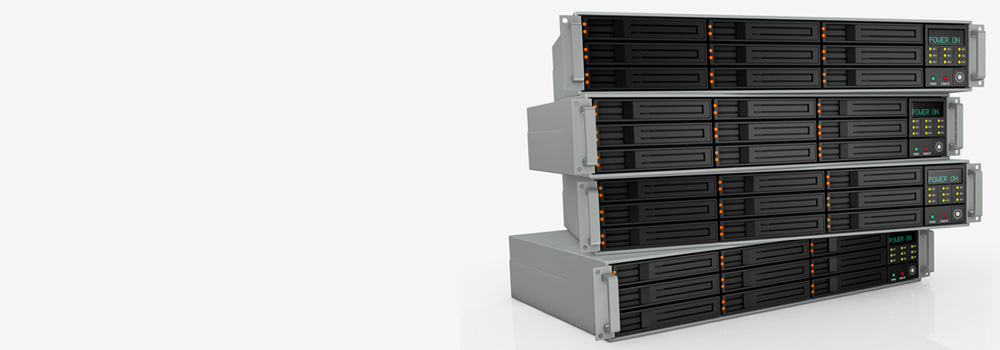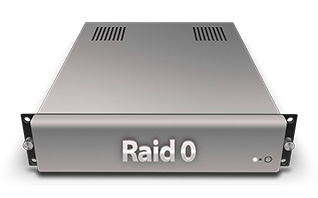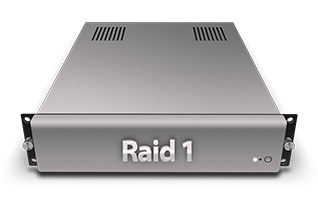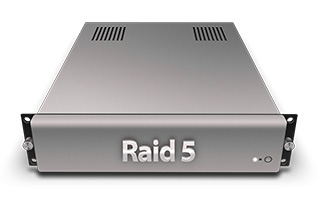Hull Data Recovery are RAID data recovery experts with 25 years of experience in retrieving lost data from RAID systems. Our UK-based team handles every RAID level (RAID 0, 1, 5, 6, 10, etc.) and every size of array – from small two‑disk NAS units to enterprise arrays of 64+ drives. We use state‑of‑the‑art proprietary tools to reconstruct RAID volumes. You can trust us to recover your data whether it’s on a simple desktop RAID or a large rackmount storage system, and we offer free diagnostics to assess every case. As RAID specialists, we emphasise both a professional and friendly approach, giving clear estimates and guiding you step by step through the recovery process.
-
RAID Levels Supported: We recover data from all popular RAID configurations – RAID 0 (striping), RAID 1 (mirroring), RAID 5 (striped with parity), RAID 6, RAID 10 (striped mirrors), RAID 50/60, and even proprietary RAID schemes.
-
Supported Systems & File Systems: Our experts handle arrays used in any operating system. This includes Windows (NTFS, ReFS, FAT32, exFAT), Apple (HFS+, APFS, Fusion Drive), and Linux/Unix (EXT2/3/4, XFS, Btrfs, ReiserFS, UFS, ZFS, etc.) We also support network file systems common in NAS devices. In practice this means we can recover drives from Windows servers, macOS workstations, Linux servers, VMware/Hyper-V virtual datastores, and more.
-
Supported Hardware: We work on all major RAID manufacturers and NAS brands. Our lab recovers from enterprise‑class storage (Dell EMC PowerEdge servers, HPE ProLiant and 3PAR systems, Lenovo ThinkSystem servers, IBM FlashSystem/Storwize, Fujitsu ETERNUS, Cisco UCS arrays, NetApp FAS/ONTAP systems, Oracle ZFS Storage, etc.). We also specialise in small/medium NAS and server RAID units from Synology, QNAP, Asustor, Western Digital, TerraMaster, Buffalo, Netgear, Seagate, Drobo, Thecus and others. For example, we routinely recover data from Synology’s DiskStation and RackStation series, QNAP’s TurboNAS/TVS units, WD My Cloud NAS, Buffalo TeraStation, Drobo BeyondRAID systems, Netgear ReadyNAS, and many rackmount storage arrays. We even work with specialised RAID controllers and JBOD devices (Intel RAID cards, Adaptec/Microchip controllers, Promise, Areca, Supermicro, etc.) to rebuild arrays on motherboards and custom appliances. TerraMaster F4-424 Pro NAS – a 4‑bay business‑class NAS noted for fast, secure multi-drive storage. Synology DiskStation DS1621+ – a 6‑bay NAS popular with SMBs; equipped with a quad‑core Ryzen CPU and expansion slots, ideal for virtualisation and data-intensive applications.
Common RAID Failure Scenarios
We see every kind of RAID failure, and our experience means we know how to tackle each one. Common issues include:
-
Multiple Drive Failures: One or more disks fail (often at once) in RAID 5/6 or RAID 10, causing a degraded or inaccessible array. Our recovery service can often retrieve data even if more drives have failed than the RAID redundancy allows.
-
RAID Controller/Hardware Fault: A broken RAID controller or faulty enclosure can make the whole array unreadable. We can bypass or emulate controllers to rebuild the data structure.
-
RAID Rebuild or Migration Failure: Interruptions or errors during a RAID rebuild or expansion (for example, after replacing a bad disk) can corrupt the array. We can reconstruct the original configuration and complete the rebuild offline.
-
Logical/File System Corruption: Software bugs, configuration errors or virus/malware attacks can damage the RAID metadata or filesystem. Our logical recovery specialists repair corrupted file systems and restore the RAID volume’s layout.
-
Bad Sectors & Read/Write Errors: Disks with bad sectors or weak heads can stall a rebuild. We image damaged drives bit-by-bit and adaptively reconstruct unreadable areas.
-
Firmware/Driver Bugs: RAID firmware glitches or driver issues (common in older controllers) can scramble data ordering. We decode proprietary RAID formats to recover data.
-
Human Error: Accidental reformatting, initialization of the array or partition deletion are surprisingly common. We can often undo these mistakes by restoring the previous RAID map and retrieving your files.
At every step, our engineers document the RAID geometry (order of disks, striping parameters, parity settings) to ensure a precise reconstruction. We then recover your files to a new healthy device or secure cloud location.
Professional Service You Can Trust
-
Free Diagnostic Evaluation: Every RAID recovery begins with a free analysis. We carefully inspect your drives in our lab and provide a transparent recovery plan (cost estimate and timeline) before any work begins.
-
No-Fix, No-Fee: If we cannot recover your data, you pay nothing. Our confidence comes from a high success rate built on decades of expertise.
-
Fast Turnaround: We know downtime is expensive. Once recovery is authorised, we typically complete RAID rebuilds and data extraction within 2–5 days (often sooner for critical cases) using cutting edge techniques and high‑speed hardware.
-
Secure & Confidential: Your data’s security is paramount. Recovered data is returned on new media or via encrypted transfer, as you prefer.
With over a quarter-century of RAID experience, Hull Data Recovery offers the UK’s best expertise in rescuing RAID arrays from every major vendor and system. Whether it’s a Dell EMC PowerEdge server, an HPE SAN, a Synology DiskStation or any other RAID/NAS unit, our friendly specialists are ready to help. Contact us today for a free diagnostics and let us safely recover your valuable data.





